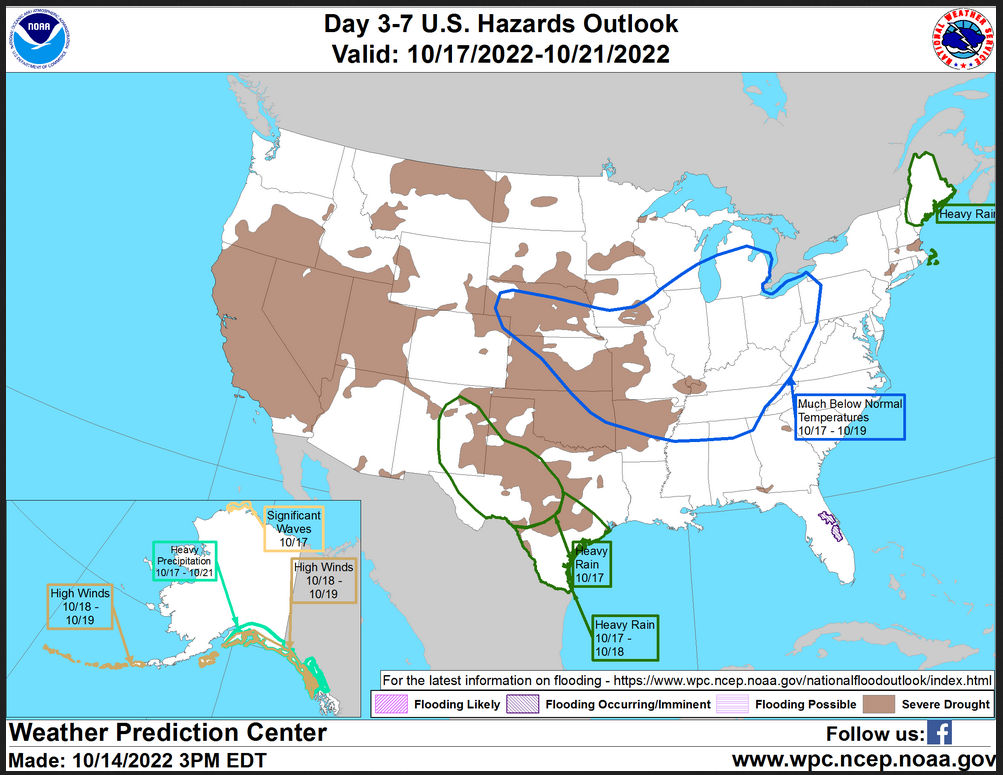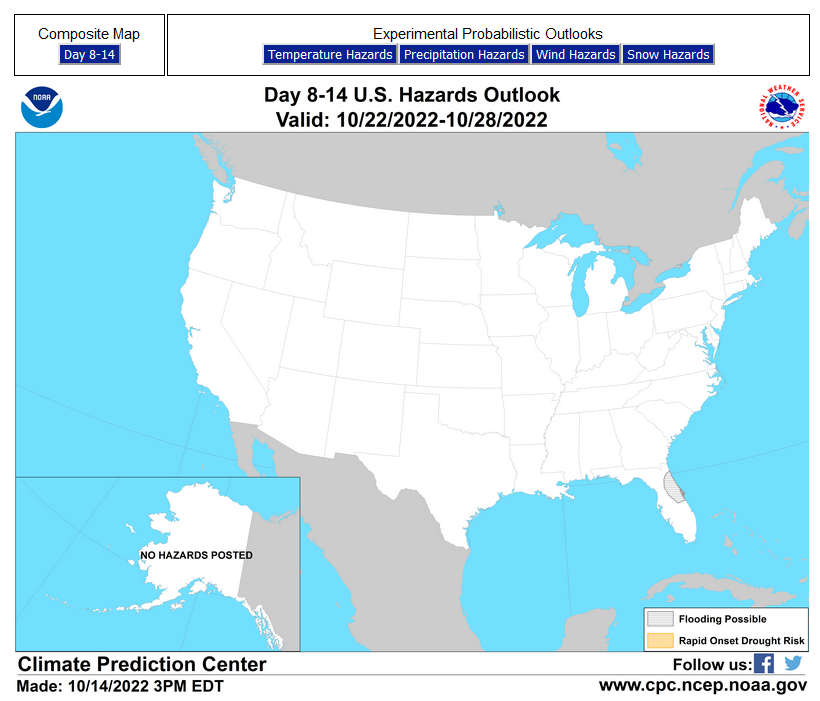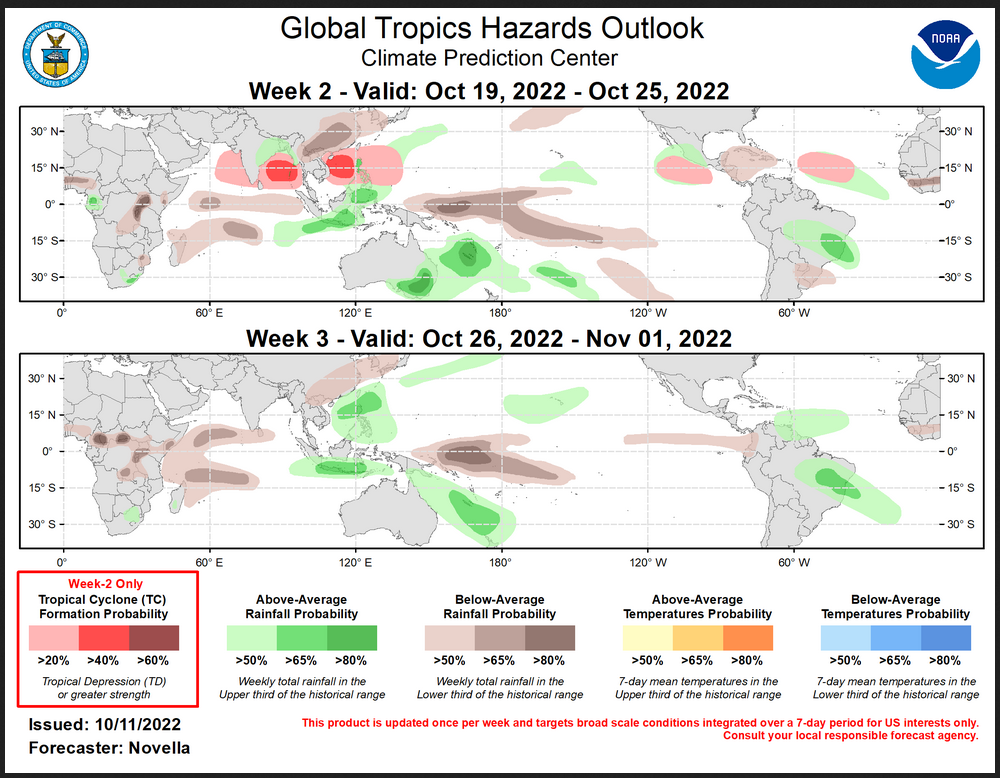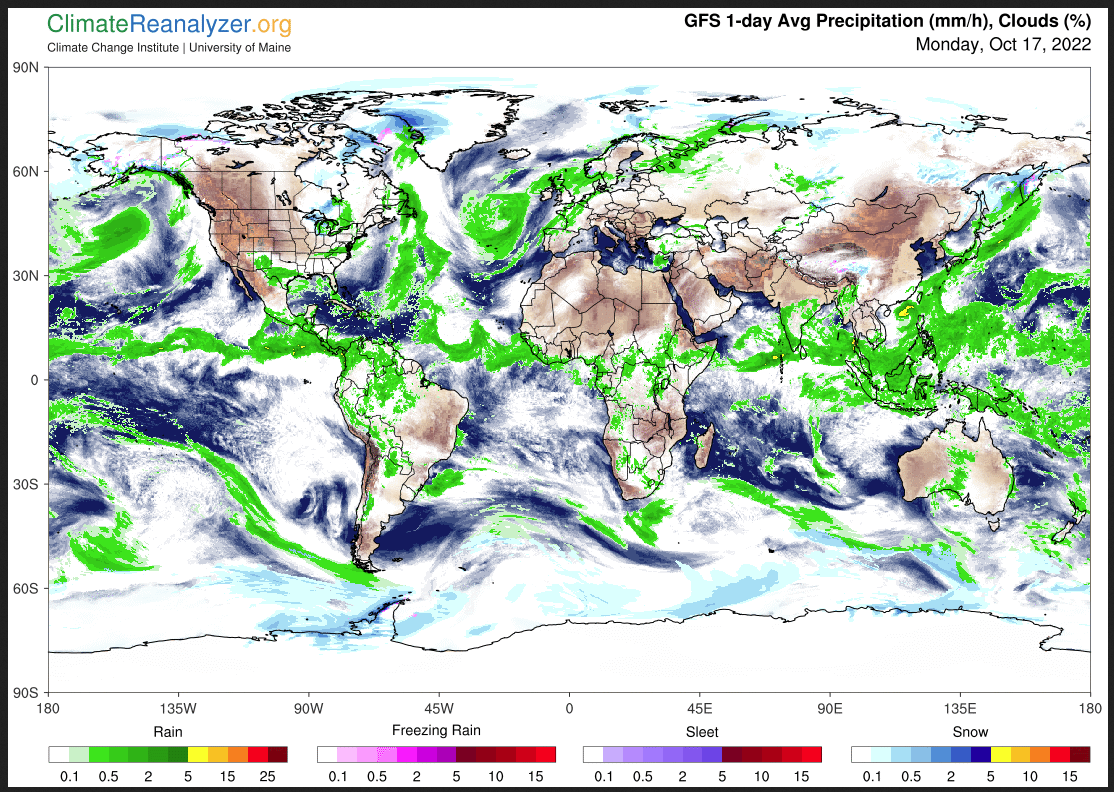Here is what we are paying attention to this morning and the next 48 hours from this morning’s NWS Forecast.
...Flash flooding concerns for southern Texas today then Maine on Tuesday... ...Unsettled and windy weather will spread from the Great Lakes to New England over next couple of days... ...Cold air sweeps through eastern half of the country while record warmth continues across Northwest...
Continuation of the NWS Short Range Forecast (It is updated twice a day and these updates can be found here.
A deep upper-level low pressure system will spin over the Great Lakes, and be responsible for much of the weather hazards that occur over the next couple of days. Light rain/snow showers and isolated thunderstorms are expected to continue impacting portions of the Upper Midwest and Great lakes today, while a deepening area of surface low pressure slows slides east through southern Ontario. As this surface wave deepens, it will increase the pressure gradient on its backside leading to strong/gusty northwesterly winds and the potential for heavy snow to develop over northwestern Wisconsin and parts of Michigan's Upper Peninsula where winter storm watches, warnings and winter weather advisories are in effect. Totals ranging from 4-8 inches with isolated 12 inch amounts over the Upper Peninsula are possible today. Scattered shower and thunderstorm activity will come to an end over much of the Southern Plains due to the southward progression of the surface cold front today. This cold front is likely to become the focus for any significant heavy rainfall and severe thunderstorms that develop over southern Texas this afternoon into tonight. A slight risk of excessive rainfall leading to flash flooding is in effect today for the far southern tip of Texas near the Brownsville area as a result. Farther downstream, this same cold front will spread scattered showers and thunderstorms across the East coast tonight before focusing anomalous moisture over New England on Tuesday. A slight risk of excessive rainfall is in effect for much of eastern Maine on Tuesday as a result. A secondary cold front will sweep through the Midwest today while high pressure builds over the Great Plains. A cold continental airmass will dive through the Midwest and Southeast behind the building high pressure to the west and the secondary cold front. Widespread high/low temperature records may be tied or broken through Tuesday night, with high and low temperature anomalies being between 15-25 degrees below average. Freeze warnings are in effect from eastern Colorado to the Ohio/Tennessee Valleys area. This may be the first freeze of the season for many places across the Central Plains, Middle Mississippi Valley and Ohio/Tennessee Valleys which will impact sensitive crops/livestock. The Northwest will remain warmer than normal over the next few days thanks to the continued presence of a staunch upper-level ridge. Some records may be tied or broken over the Pacific Northwest and Northern Rockies on Tuesday.
Current forecast of heavy precipitation (Updates can be found HERE)
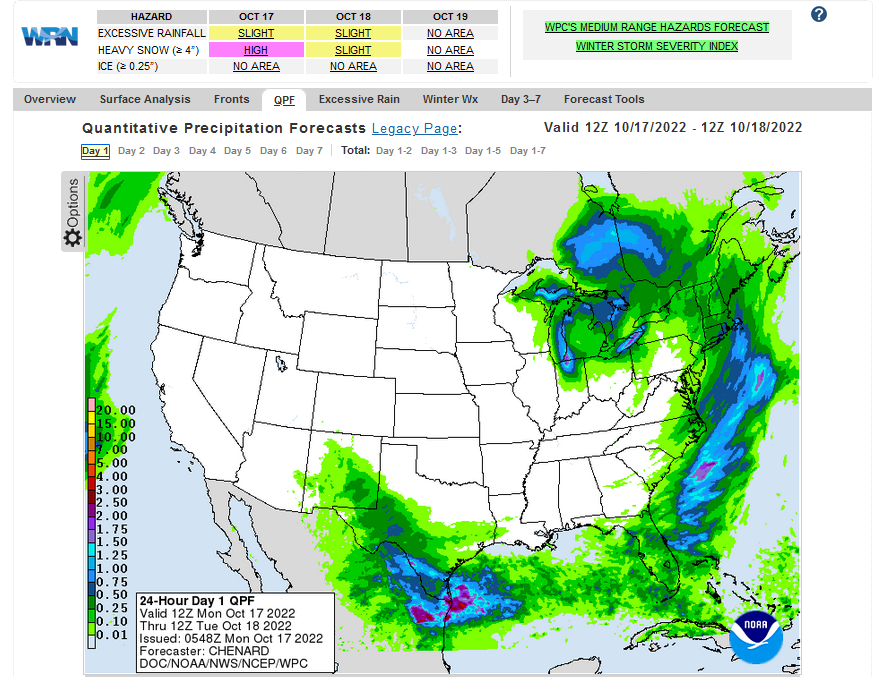 Maps that relate the forecast to geography can be found by clicking Here for Day 1 and Here for Day 2.
Maps that relate the forecast to geography can be found by clicking Here for Day 1 and Here for Day 2.
Here is a 60-hour animated forecast map that shows how the short-term forecast is expected to play out
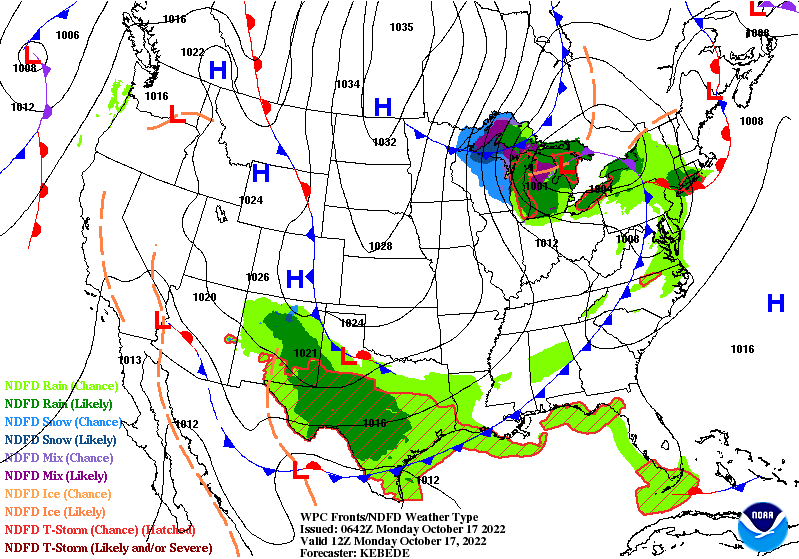 If it needs to be updated click here.
If it needs to be updated click here.
HAZARDS OUTLOOKS
Click here for the latest complete Day 3 -7 Hazards forecast which updates only on weekdays. Once a week probably Monday or Tuesday I will update the images. I provided the link for readers to get daily updates on weekdays. Use your own judgment to decide if you need to update these images.
Worldwide Tropical Forecast
(This graphic updates on Tuesdays) If it has not been updated, you can get the update by clicking here This is a new approach and covers weeks 2 and 3 not weeks 1 and 2. It has more information but I am having trouble getting used to it. As usual, it comes with a discussion which is below
Detailed Maps and Reports for the Western Atlantic and the Pacific Oceans
Below are four maps that summarize the situation for the Atlantic, Eastern, Central Pacific, and Western Pacific. Additional information can be accessed by clicking HERE
First the Atlantic
Click to view the forecast map and have access to additional information https://www.nhc .noaa.gov/gtwo.php?basin= atlc&fdays=5
Then Eastern Pacific
Click to view the forecast map and have access to additional information https://www.nhc.noaa.gov/gtwo.php?basin=epac&fdays=5
Then Central Pacific
Click to view the forecast map and have access to additional information https://www.nhc.noaa.gov/gtwo.php?basin=cpac&fdays=5
And the Western Pacific
Click to view the forecast map and have access to additional information https://www.metoc.navy.mil/jtwc/jtwc.html
Some Intermediate-Term Outlooks
Links to “Outlook” maps and discussions for three time periods. Days 6 – 10, Days 8 – 14, and Weeks 3 and 4. An outlook differs from a forecast based on how NOAA uses these terms in that an “outlook” presents information from deviation from normal and the likelihood of these deviations.
You have to click on the links because they do not update automatically and I do not want to have stale images in the article. But it is not difficult to click on a link and you get a large image plus a discussion. On Fridays in a separate article, we will show the images and provide a link in this article that article. But remember what you will see is the images as of Friday. But here you can get the current images simply by clicking on them. Then hit the return arrow at the upper left of your screen to return to the article. You will not find this information easily anywhere else.
Right now you can find these maps here (We show them every Friday there but you can click above and find them).
Worldwide Weather
Below is the current or short-term precipitation forecast which can be updated by clicking HERE Additional maps can be obtained HERE.
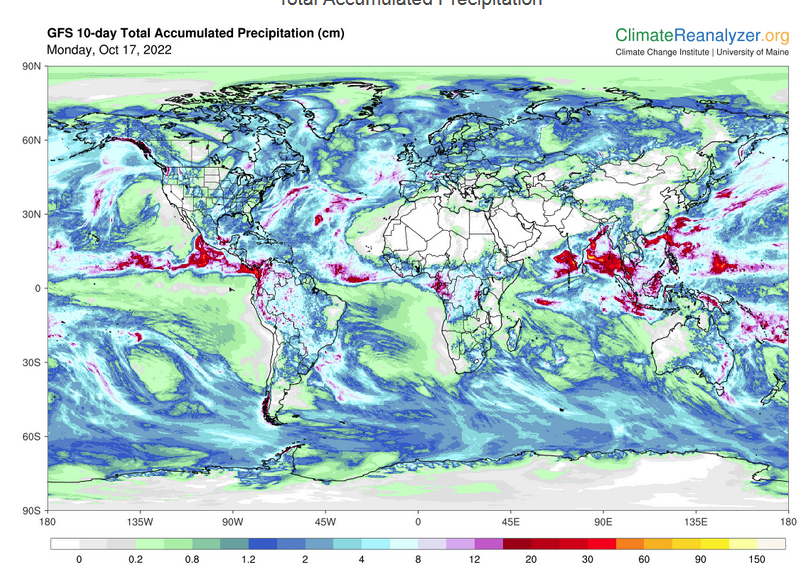 Month to Date Information
Month to Date Information
Month to date Temperature can be found at https://hprcc.unl.edu/products/maps/acis/MonthTDeptUS.png
Month to date Precipitation can be found at https://hprcc.unl.edu/products/maps/acis/MonthPNormUS.png

